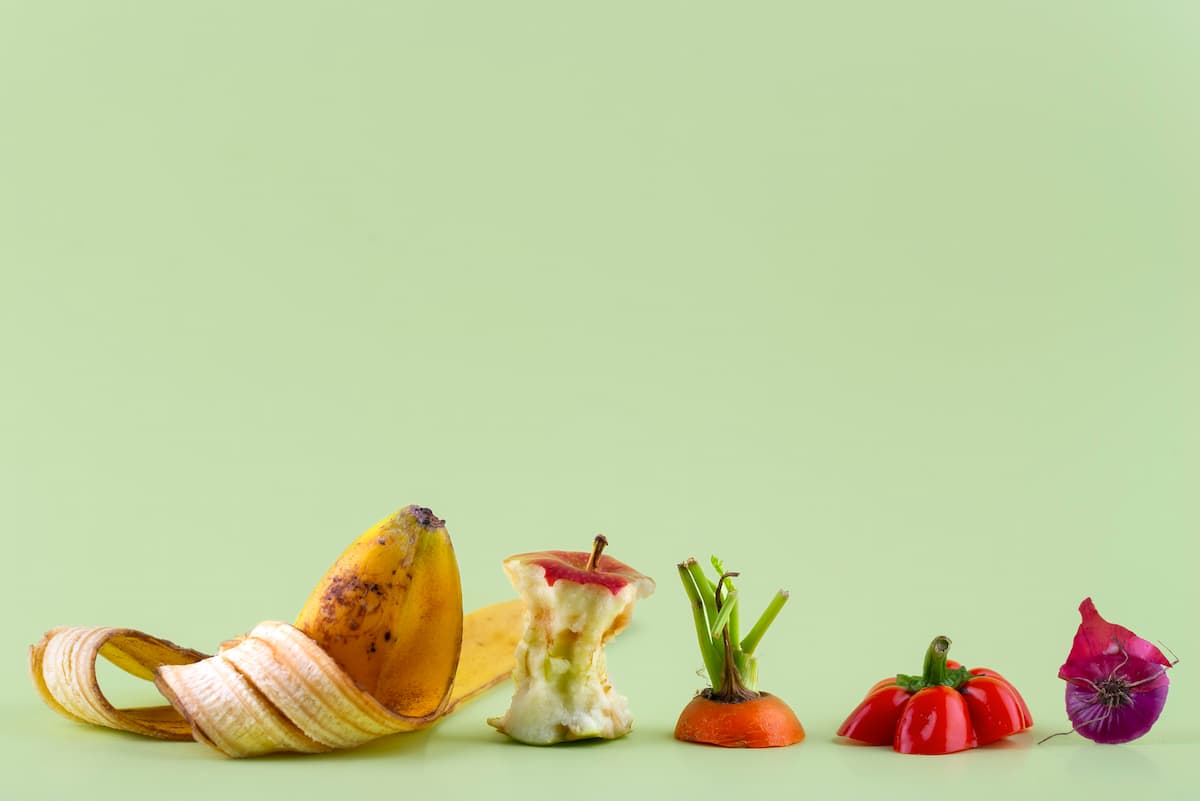Food waste in Poland and around the world. How to reduce it?
How much food do we throw away every day? What can be done to reduce food waste? Check.


Learn more about our editorial process
.

Learn more about our editorial process
.

Learn more about our editorial process
.
Why you can trust us
Articles on Natu.Care are written based on scientific research, data from government websites and other reliable sources. The texts are written in cooperation with doctors, nutritionists and other health and beauty experts. Articles are reviewed before publication and during significant updates.
.Learn more about our editorial process
.Information about advertisements
Content on Natu.Care may contain links to products from the sale of which we may receive a commission. When creating content, we adhere to high editorial standards and take care to be objective about the products discussed. The presence of affiliate links is not dictated by our partners, and we select the products we review ourselves completely independently.
.Learn more about our terms and Conditions
.You know the one? That one uneaten yoghurt that hid a week ago in the corner of the fridge. Or the wrinkled potatoes that have had time to grow roots and are now waving at you from the cupboard.
Every day, almost every day, something gets overdue, spoils or loses its freshness. And almost every day these things end up in the bin. Seemingly nothing. And yet, looking globally, it turns out that food waste is a huge problem. So huge that it has to be counted in millions of tonnes.
.From this article you will learn:
- What are the statistics on food waste in Poland and worldwide.
- What are the statistics on food waste?
- Whether consumers are the only ones responsible for wasting food.
- Whether consumers are the only ones responsible for wasting food.
- How does discarded food affect the environment. .
- Whether food waste affects the problem of world hunger. .
- What you can do to reduce food waste. .
See also:
- Tobacco Cessation Day .
- Clean Air Day
- Lung health after a pandemic
- National Kindergarten Day
- World No Phone Day
- Bone Marrow Donor Day
- Fish Day
- Great Bee Day
- Blood Donation Day
- Hug Day
- Of singles on Valentine's Day
- How to take care of your mental health
World Food Day
.Did you know that 16 October is World Food Day? It is an important holiday that was established in 1979 by the Food and Agriculture Organisation of the United Nations, known as the FAO (Food and Agriculture Organization).
Celebrated around the globe, it is designed to draw public attention to food issues around the world. It is not only an opportunity to reflect, but also to take action. It is a good time to reflect on global food issues and what we can do to help solve them.
How much food do we waste?
.A tonne is a lot. And a million tonnes becomes a completely abstract concept. It is difficult to even imagine. Unfortunately, it is in millions of tonnes that the scale of wasted food is measured. Both globally and in Poland.
.Food waste in the world
.According to an FAO report, around 1.3 billion tonnes of food are wasted annually worldwideand.

If we divide this by 365 days, we find that more than 3.5 million tonnes of food ends up in landfills every day. If that wasn't enough, the FAO estimates that food waste is a basket reaching billion dollars a yearand.
To illustrate this better: if the rumour that Elon Musk earns $430 million a day is true - his account will be credited with just under $157 billion a year. A trillion is still a very long way away.
Food waste in Poland
.According to Food Banks in Poland, we waste around 4.8 million tonnes of food every year. It is estimated that as much as 60% of this is wasted in our homes. This means that each of us throws away about 75 kg of food every yearand.

Interestingly, according to the CSO, the statistical Smith produces 360 kg of waste annually . This means that discarded food accounts for more than 20% of the rubbish we produce. That is, one in five pieces of rubbish we throw away is food.
Every time we waste food (and unfortunately it happens to each of us even occasionally), let's think about why we bought that product in the first place and why we are throwing it away. Such an analysis is a good solution because we often make purchases on impulse, without planning them, and we throw them away even more unconsciously..
 .
.
Julia SkrajdaDietitian
.Natu.Care Collagen Premium 5000 mg, mango & passion fruit

- Collagen content: 5000 mg marine collagen hydrolysate
- Additional active ingredients: vitamin C, low molecular weight hyaluronic acid (and L-theanine and coenzyme Q10 in cocoa flavoured collagen or vitamin A and vitamin E in mango–passion fruit flavoured collagen)
- Form: powder sachets
- Dose: 1 sachet per day
- Sufficient for: 30 days
Product description
Fish collagen from the Natu.Care brand in a dose of 5000 mg, based on certified ingredients of the best quality. Regular supplementation will positively influence the appearance of the skinóry, hairów and nails – they will be rebuilt and strengthened from the inside.
In addition to collagen, which is valuable for health and beauty, it also offers other active ingredients that help to maintain a youthful complexion, shiny hair and strong nails.
The formula contains a sufficient portion of the active ingredient to positively affect joints, the musculoskeletal system and immunity.
Natu.Care Premium Collagen is available in two flavours – Cacao Bloom and Rise&Shine. Both formulas are based on the following active ingredients: marine collagen hydrolysate, wild roseóbud extract and hyaluronic acid.
Additionally, Cacao Bloom contains natural L-theanine, coenzyme Q10 and defatted Dutch cacao. Rise&Shine instead contains vitamin E and vitamin A.
These are the best collagens in the world.
These best fish collagens on the market also rós taste – Cacao Bloom is a treat for chocolate lovers. Rise&Shine will appeal to those whoólike the refreshing taste of mangoófruit and passion fruit.
Pros and cons
Pros:
- Vitamin C supports the body's collagen production, enhancing its effectiveness.
- An effective dose of hyaluronic acid, which additionally supports skin hydration and joint health.
- Fish collagen absorbs 50% better. Additionally, the manufacturer specifies the fish species it is sourced from (Atlantic cod).
- The composition has been tested by the independent and accredited J.S. Hamilton laboratory.
- MSC (Marine Stewardship Council) quality certification, which confirms that the collagen source supports sustainable fishing practices.
Cons:
- None.
Additional information
Natu.Care's fish collagen receives praise for its delicious taste. You won't find the fishy aftertaste that often comes through in other collagens. Plus, you have two tasty flavors to choose from: cocoa and mango-passionfruit.
Active ingredients like coenzyme Q10, hyaluronic acid, and natural L-theanine provide anti-inflammatory and antioxidant benefits while slowing down aging processes.
User review
Super, after about 6 weeks of use, the skin on my face became noticeably firmer. Wonderful taste.
Ania ZalewskaNatu.Care customer
Natu.Care Premium collagen 10 000 mg, mango-maracuja

- Collagen content: 10,000 mg marine collagen hydrolysate
- Additional active ingredients: vitamin C, low molecular weight hyaluronic acid (and L-theanine and coenzyme Q10 in cocoa flavoured collagen or vitamin A and vitamin E in mango–passion fruit flavoured collagen)
- Form: powder sachets
- Dose: 1 sachet per day
- Sufficient for: 30 days
Product description
One of the strongest collagens on the market, whichós provides as much as 10,000 mg in a daily serving. This allows the formula to effectively support the condition of the skin, hair and nails.
With this supplement, you will support your beauty, which will allow you to visually stop the ageing process and feel a second youth!
Natu.Care Collagen Premium 10 000 mg comes in two flavours – cherry and mango-maracuja. Both formulas have the same product backbone – collagen, hyaluronic acid and vitamin C.
In the cherry version you additionally find glucosamine, chondroitin and Indian frankincense resin extract. Mango-maracuja, on the other hand, contains vitamin E and vitamin A.
Pros and cons
Pros:
- Tested collagen formula – SeaGarden, whose effects have been confirmed in clinical studies.
- Effective dose of hyaluronic acid, additionally moisturizing the skin and positively impacting joint health.
- Vitamin C supports the body’s natural collagen production.
- The composition has been tested by the independent and accredited J.S. Hamilton laboratory.
- The product has an MSC (Marine Stewardship Council) quality certification – the collagen source supports sustainable fishing practices.
Cons:
- None.
Additional information
Users praise Natu.Care Collagen Premium for the easy dissolvability of the powder.
User review
I noticed a significant improvement in my skin texture after a few weeks of taking collagen regularly. My complexion is now as soft as velvet!
Natu.Care Collagen Premium 10000 mg, cherry

- Collagen content: 10,000 mg of hydrolyzed bovine collagen
- Additional active ingredients: vitamin C, low molecular weight hyaluronic acid, glucosamine, chondroitin, extract of Indian frankincense resin (boswellia serrata)
- Form: powder sachets for drinking
- Serving: 1 sachet per day
- Lasts for: 30 days
Product description
One of the strongest collagens on the market, providing as much as 10,000 mg per daily serving. This product can effectively support the condition of joints, skin, hair, and nails.
With this supplement, you will support your skeletal and joint system as well as your beauty, helping you visually halt the aging process and feel rejuvenated!
Pros and cons
Pros:
- The daily portion of collagen is very large – as much as 10,000 mg.
- Proven collagen formula – COLLinstant, whose effectiveness has been confirmed in clinical studies.
- Effective dose of hyaluronic acid, which additionally moisturizes the skin and positively affects joint health.
- Vitamin C supports the body's natural collagen production.
- Glucosamine is a fundamental building block of compounds found in joint cartilage and a component of collagen that gives elasticity to connective tissue in tendons.
- Chondroitin is a natural component found in the human body, mainly in cartilage. This large molecule (mucopolysaccharide) has the ability to absorb water, which helps maintain the elasticity and resilience of cartilage.
- Frankincense resin extract supports blood circulation and joint mobility and reduces their stiffness. It may help alleviate inflammatory conditions.
- The composition has been tested by the independent and accredited J.S. Hamilton laboratory.
Cons:
- None.
Additional information
Users praise Natu.Care Collagen Premium for the easy dissolving of the powder.
Premium Sodium Butyrate
Product description
Premium Sodium Butyrate is a natural support for your digestive system. With a high dose of butyric acid (940 mg), it supports the regeneration of the intestinal mucosa, improving gut health and function, and aids in the absorption of nutrients. By taking care of your intestines, you're taking care of the health of your entire body.
Studies involving people suffering from irritable bowel syndrome confirm that sodium butyrate is ideal for supporting issues related to bacterial flora imbalances (for example, after antibiotic therapy), constipation and diarrhea, inflammation of the intestinal mucosa, or a diet low in fiber.
Premium Sodium Butyrate capsules are made using the innovative DRcaps® technology. This guarantees that the active ingredients in the product are protected from the destructive effects of stomach acids and digestive enzymes. As a result, we can be sure that the beneficial ingredients are released in the small intestine and are fully absorbed by our body.
Premium Sodium Butyrate from Natu Care is 100% tested, and its composition contains only the highest quality raw materials.
Pros and cons
Pros:
- Supports digestive system function
- Helpful for various gastrointestinal conditions, including IBS
- High dose of butyric acid in each capsule
- Eco-friendly, clean, and tested composition
- Free from added sugar, gluten, GMOs, and lactose
- Innovative capsule technology - DRcaps
Cons:
- None
Additional Information
Take 3 capsules daily at any time of the day, preferably with a meal. Swallow the capsules whole with water.
Premium Sodium Butyrate is intended for adults.
The product should be used under medical supervision.
User review
I've been using the product for 2 weeks. My stomach feels lighter, and my digestion has improved. I recommend it.
Natu.Care Premium Magnesium + Vitamin B6

- Magnesium content per day: 305 mg
- Additional active ingredients: Vitamin B6 (2.1 mg)
- Form: capsules
- Serving size: 3 capsules per day
- Sufficient for: 30 days
Product description
The Premium Magnesium + Vitamin B6 dietary supplement is a comprehensive product that combines three organic forms of magnesium (citrate, malate, and diglycinate) and vitamin B6 in highly absorbable forms.
Magnesium is an essential mineral without which our bodies cannot function properly. It supports the immune, nervous, and muscular systems, maintains electrolyte balance, and is involved in cell division and the regulation of mental functions.
Research shows that magnesium supplementation is even more effective when accompanied by vitamin B6, which is included in our product. Vitamin B6 is responsible for the proper functioning of the nervous and immune systems, as well as the proper functioning of the heart.
If you want to safely get rid of feelings of fatigue, concentration problems, hair loss, muscle cramps, trembling, or irritability, reach for Premium Magnesium from Natu.Care, tested by the independent, certified laboratory J.S. Hamilton Poland.
Pros and cons
Pros
- Supports the proper functioning of the nervous and immune systems.
- Reduces feelings of fatigue and tiredness.
- Maintains proper psychological functions.
- The purity of the ingredients (free from anti-caking agents, artificial fillers, and additives such as titanium dioxide, microcrystalline cellulose, talc, magnesium stearate, and silicon dioxide) has been confirmed by laboratory tests.
- High absorption of ingredients.
- Soft capsules that are easy to swallow.
- Suitable for vegetarians and vegans.
Cons
- None.
Additional information
Take with a meal, 3 capsules per day.
The capsules should be taken with at least 250 ml of water.
If you have trouble sleeping, it is advisable to take 1 capsule in the morning and 2 capsules in the evening, no later than 4 hours before bedtime.
Avoid combining with products high in calcium (milk, yogurt, cheese), as this may negatively affect magnesium absorption.
Pregnant and breastfeeding women should consult a doctor before starting supplementation.
User review
I’m very impressed with the speed of delivery. The product itself is of high quality and absorbs well. After two weeks of supplementation, I’ve noticed a significant improvement in muscle recovery, especially during periods of intense training. I highly recommend it!
Product description
The dietary supplement contains omega-3ᵀᴳ, or omega-3 acids in the form of trójglyceridesów. Scientific studies suggest that this form of fatty acidsós up to 2 times better absorbed than the estersós present in many dietary supplements on the market. This means that you are assured of their effectiveness and of supplying yourself with valuable omega acids.
Fatty acids omega-3 are derived from wild anchovy oil. It is a rich source of healthy fats that are essential for the health of the cardiovascular, immune and nervous systems, as well as the proper function of vision, joints muscles.
Scientific research suggests that wild anchovies are a good source of healthy fats.
Scientific research also suggests that an adequate intake of omega-3 fatty acidsós protects against and supports the treatment of depression and anxiety disorders. In addition, omega-3s influence the hydration and appearance of the skinóry and support healthy sleep.
.
The formula contains a total of 750 mg of EPA+DHA acidsós, which is three times higher than the recommended minimum of 250 mg for the Polish population. Omega-3 TG Premium has studies indicating that its TOTOX is 9, which is a very good result.
Supplementation of omega-3 fatty acidsóis recommended for anyone who does not eat 1–2 portions (approximately 300 g) of oily fish per week. Children during growth, seniors, physically active people, vegans and vegetarians, as well as patients undergoing cardiovascular treatment and prevention of heart disease also have an increased need.
Pros and cons
The dietary supplement contains omega-3ᵀᴳ, or omega-3 acids in the form of trójglyceridesów. Scientific studies suggest that this form of fatty acidsós up to 2 times better absorbed than the estersós present in many dietary supplements on the market. This means that you are assured of their effectiveness and of supplying yourself with valuable omega acids.
Fatty acids omega-3 are derived from wild anchovy oil. It is a rich source of healthy fats that are essential for the health of the cardiovascular, immune and nervous systems, as well as the proper function of vision, joints muscles.
Scientific research suggests that wild anchovies are a good source of healthy fats.
Scientific research also suggests that an adequate intake of omega-3 fatty acidsós protects against and supports the treatment of depression and anxiety disorders. In addition, omega-3s influence the hydration and appearance of the skinóry and support healthy sleep.
.
The formula contains a total of 750 mg of EPA+DHA acidsós, which is three times higher than the recommended minimum of 250 mg for the Polish population. Omega-3 TG Premium has studies indicating that its TOTOX is 9, which is a very good result.
Supplementation of omega-3 fatty acidsóis recommended for anyone who does not eat 1–2 portions (approximately 300 g) of oily fish per week. Children during growth, seniors, physically active people, vegans and vegetarians, as well as patients undergoing cardiovascular treatment and prevention of heart disease also have an increased need.
Additional information
The dietary supplement contains omega-3ᵀᴳ, or omega-3 acids in the form of trójglyceridesów. Scientific studies suggest that this form of fatty acidsós up to 2 times better absorbed than the estersós present in many dietary supplements on the market. This means that you are assured of their effectiveness and of supplying yourself with valuable omega acids.
Fatty acids omega-3 are derived from wild anchovy oil. It is a rich source of healthy fats that are essential for the health of the cardiovascular, immune and nervous systems, as well as the proper function of vision, joints muscles.
Scientific research suggests that wild anchovies are a good source of healthy fats.
Scientific research also suggests that an adequate intake of omega-3 fatty acidsós protects against and supports the treatment of depression and anxiety disorders. In addition, omega-3s influence the hydration and appearance of the skinóry and support healthy sleep.
.
The formula contains a total of 750 mg of EPA+DHA acidsós, which is three times higher than the recommended minimum of 250 mg for the Polish population. Omega-3 TG Premium has studies indicating that its TOTOX is 9, which is a very good result.
Supplementation of omega-3 fatty acidsóis recommended for anyone who does not eat 1–2 portions (approximately 300 g) of oily fish per week. Children during growth, seniors, physically active people, vegans and vegetarians, as well as patients undergoing cardiovascular treatment and prevention of heart disease also have an increased need.
Expert opinion
The dietary supplement contains omega-3ᵀᴳ, or omega-3 acids in the form of trójglyceridesów. Scientific studies suggest that this form of fatty acidsós up to 2 times better absorbed than the estersós present in many dietary supplements on the market. This means that you are assured of their effectiveness and of supplying yourself with valuable omega acids.
Fatty acids omega-3 are derived from wild anchovy oil. It is a rich source of healthy fats that are essential for the health of the cardiovascular, immune and nervous systems, as well as the proper function of vision, joints muscles.
Scientific research suggests that wild anchovies are a good source of healthy fats.
Scientific research also suggests that an adequate intake of omega-3 fatty acidsós protects against and supports the treatment of depression and anxiety disorders. In addition, omega-3s influence the hydration and appearance of the skinóry and support healthy sleep.
.
The formula contains a total of 750 mg of EPA+DHA acidsós, which is three times higher than the recommended minimum of 250 mg for the Polish population. Omega-3 TG Premium has studies indicating that its TOTOX is 9, which is a very good result.
Supplementation of omega-3 fatty acidsóis recommended for anyone who does not eat 1–2 portions (approximately 300 g) of oily fish per week. Children during growth, seniors, physically active people, vegans and vegetarians, as well as patients undergoing cardiovascular treatment and prevention of heart disease also have an increased need.
Natu.Care Vitamin D 2000 UI
Product description
Vitamin D plays a crucial role in our health and well-being. It affects calcium and phosphate metabolism, which translates to healthy bones and teeth. It also helps regulate the immune system, and studies indicate its influence on the functioning of the nervous system.
Vitamin D, although called a “vitamin,” is actually a prohormone that our body produces on its own, primarily under the influence of sunlight. Unfortunately, our modern lifestyle contributes to deficiencies of this essential vitamin. Working in enclosed office buildings, using (necessary!) SPF creams, and covering the body with clothing all make it very difficult, if not impossible, to obtain adequate levels of vitamin D from sunlight. This is why appropriate, year-round supplementation is so crucial.
Vitamin D from Natu.Care is a well-tested vitamin D3 suspended in safflower oil, a plant known for its numerous health benefits. The convenient, easy-to-swallow capsule will make supplementation a part of your daily, healthy routine, improving your overall well-being.
Pros and cons
Pros:
- Ensures proper functioning of the immune system
- Supports the maintenance of healthy bones and teeth
- Maintains proper heart, kidney, and muscle function
- Tested by an independent, certified laboratory
- Convenient and easy-to-swallow capsule
- Clean composition - free from added sugar, gluten, GMOs, lactose, and without preservatives or colorants
Cons:
- None.
Additional Information
Pregnant women and breastfeeding mothers should consult a doctor before using the product. This dietary supplement is intended for a healthy adult population up to the age of 75.
Collagen Booster - Glow Stories

- Active ingredients: bamboo shoot extract, Quatrefolic®, L-Methionine, L-cysteine, vitamin E, vitamin A, niacin (vitamin B3), vitamin B6, vitamin B2 (riboflavin), biotin, zinc, copper
- .
- Form: capsules
- .
- Dose: 1 capsule per day
- .
- Sufficient for: 60 days
- .
Product description
A dietary supplement containing vitamins, minerals and plant extracts thatósupport the skinóhand, hair and nails. The product is especially distinguished by the form of folate – it is Quatrefolic, whichós absorbed very well and is natural.
In addition to valuable vitamins and minerals, such as vitamin A, E, B3, B2 and biotin, the formula contains bamboo shoot extract, whichóry further enhances your beauty.
Pros and cons
A dietary supplement containing vitamins, minerals and plant extracts thatósupport the skinóhand, hair and nails. The product is especially distinguished by the form of folate – it is Quatrefolic, whichós absorbed very well and is natural.
In addition to valuable vitamins and minerals, such as vitamin A, E, B3, B2 and biotin, the formula contains bamboo shoot extract, whichóry further enhances your beauty.
Additional information
A dietary supplement containing vitamins, minerals and plant extracts thatósupport the skinóhand, hair and nails. The product is especially distinguished by the form of folate – it is Quatrefolic, whichós absorbed very well and is natural.
In addition to valuable vitamins and minerals, such as vitamin A, E, B3, B2 and biotin, the formula contains bamboo shoot extract, whichóry further enhances your beauty.
Where and how is food wasted?
.Contrary to what you might think, food waste is not just about that uneaten yoghurt that's gone out of date or the tomato that's mouldy in our vegetable garden. Food waste starts much earlier than in the household waste bin.
.Food has its life cycle, in which 6 stages are distinguished:
- production -i.e. agricultural crops, cattle breeding, .
- storage - usually after harvesting, .
- processing - some foods, such as vegetables and fruit that we buy unaltered, do not require this stage, .
- distribution - this is the stage where food products reach the shops, .
- consumption - when we buy the food and have it in our homes, .
- expiry date -i.e. that unfortunate, out-of-date yoghurt.
Losses are recorded at each of these stages, and they start as early as in the crop fields. Improper harvesting methods or pest control cause the first damage. This is followed by inadequate storage conditions for harvested food and huge losses during processingand.
According to the FAO, around 75% of food is lost during these first 3 stages worldwide. In turn, around 35% of food is wasted in shops and households. Interestingly, most of this thrown away food is fit for consumptionand.
The picture is slightly different in Poland. According to statistics from Food Banks in our country, around 30% of food is wasted at the production and processing stage. Distribution and trade are responsible for another 10% of food lost, while as much as 6 out of 10 wasted food products are things thrown away in our homesand.
.Food waste and environmental pollution
.In November 2022, the world's population reached 8 billion. It is estimated that by 2030 there will be 600 million more of us. An ever-increasing population also means more food produced, and therefore even more rubbish.
When you waste food, you waste not only the resources that went into its production, such as water and energy. It also leads to unnecessary waste generation. Discarded food ends up in landfills, where it decomposes and produces methane - a greenhouse gas that contributes to climate changeand.
According to FAO data, if food waste were a country, it would be the world's third largest emitter of CO2 -right after China and the USand. Worse still, all indications are that this problem will only get worse.
Food production also contributes to environmental pollution. The agricultural industry, especially animal husbandry, generates significant amounts of greenhouse gases. If this food is not consumed, all this energy, resources and emissions go to waste.
Wasting food is not an option.
Food waste and the problem of hunger
.While millions of tonnes of food languish in landfills, the world still faces the problem of hunger in developing countries. The difficulty here is not a lack of food at all. According to the World Food Programe (WFP), enough food is produced in the world to feed every personand.
In addition to social and geopolitical reasons, it is believed that food wastage is one of the main reasons for world hunger. And while in developed areas food throwing is mainly focused on the fact that we are unable to overeat it, in developing countries the biggest losses are recorded at the growing, harvesting and storage stages.
Very often, farmers do not have the manpower to harvest their entire crop or do not have the conditions and technology to store it properly. As a result, food rots, moulds or is attacked by pestsand.
The WFP claims that the food produced that was wasted would be enough to feed as many as 2 billion people. And that's more than twice as many undernourished people worldwideand. Of course, just because you stop buying to stock up and cut down on throwing away uneaten produce, doesn't mean that somewhere on the other side of the world the hunger problem will suddenly start to disappear.
To improve the situation in developing countries you need investment in new technology and in education, things that are beyond your control. However, this does not mean that food is not worth caring about. It is worth it - if only for the sake of the environment, the waste problem and water management.
How to reduce food waste - a mini-guide
.What can you do on a daily basis to throw away less food? Here 10 simple tips that you can implement right away (or from your next shopping trip):
- Don't go shopping hungry. A 2015 study suggests that when we are hungry, we are likely to shop more than we needand. Conversely, according to a 2022 study, when we are burping in our stomachs we tend to buy lower quality products . I wonder how many of these end up in the bin later. .
- Freeze what you can. I can't count the number of times I've found myself cooking like I was cooking for an army regiment. When you can't get through a whole pot of soup or all your fried chops, don't wait until they start to smell suspicious. Just freeze them. You can freeze soups, sauces, stews, delicatessen dishes (dumplings, potato dumplings, stuffed cabbage rolls) and most fruit and vegetables. An added plus: you have lunches ready to go for longer. .
- Don't buy to stock up. The coronavirus pandemic period has emphatically shown that it is not worth stocking up, and we are unlikely to run out of food in the shops. Remember too that buying more because it's on promotion usually contributes to wasting money rather than saving money. Even if you buy cheaper but don't use the products and then have to throw them away - you're actually throwing your money away too. .
- Plan your meals. This is probably the hardest of the tips, as it requires good preparation. However, if you determine your menu for the next week, you can easily prepare the necessary shopping list. All you have to do is stick to it when you go to the shop. That way you can be sure that nothing you buy goes to waste.
- Keep your kitchen tidy. It may sound a bit surprising, but think about it, don't you sometimes find an old jar of mayonnaise in the corner of the fridge? Or an open jam that has had time to develop new life? That's right. And then you find that, after all, you recently bought new mayonnaise (or jam) because you thought it had long since run out. The same goes for products with a long shelf life, such as instant - buried in cupboards. .
- Make preserves. This is also a great way to make sure you don't waste fruit and vegetables - especially seasonal ones. Overripe (but not rotten or mouldy!) fruit is great for preserves. A present from grandpa in the form of 20 kg of cucumbers from the allotment can also be sealed in jars.
- Share. All right, you've already got the preserves, but you know you won't be able to eat them even through the winter. Well, donate a jar each to your friends or neighbours. Baked cake too much for you? Bring a piece to your work colleagues - they will love it. And who knows, maybe one day they'll return the favour.
- Order less at restaurants. When you eat out, you can also cut down on food that goes to waste. If you're one of those people who (like me) eat with their eyes and feel like trying literally everything on the menu... remind yourself that your stomach has limits. Order a smaller portion and if you don't eat enough, only order more. You will spend less and waste less. .
- Store food properly. Did you know that plants that give off a lot of ethylene can accelerate the spoilage of other products? That's why it's a good idea to keep bananas, avocados, pears, apples, peaches, nectarines and tomatoes separate from other fruit and vegetables. .
- Grow food rescue. Download apps (such as Too Good To Go or Foodsi) and see which local trader has a surprise parcel to sell. The parcels include food that has not been used in restaurants, cafes, bakeries and shops. Thanks to the apps, you can locate them and buy them much cheaper - even for ⅓ the price.
That's it from me, but nutrition experts, have some more advice for you:
.Clinical nutritionist Kuba Pągowski:
"In my opinion, the best and most sensible option to reduce food waste is shopping lists. If we know what and how much we need to buy in order, for example, to have something to eat for the whole week then this will reduce the throwing of food in the bin. When walking through a shop with a list of what we need in our hand/phone, it is harder to fall into a shopping frenzy and acquire products that we will only use once and throw the rest away. Plus it saves us time and money."
Dietitian and personal trainer Marta Kaczorek:
."Buy products that have been tried and tested in your home. If your children don't like natural yoghurt, for example, and you're the only one who eats it, buy as much as you'll eat. And remember that well-stored and unopened dairy products can be eaten even a few days after the best-before date.
Purchase as much as you can.
If you want to buy more, only buy pre-packaged products with a long use-by date to stock up. Buy bread every day or every other day, and uneaten bread can be dried and made into breadcrumbs. Buy vegetables and fruit every two to three days, and when you know you won't eat something - freeze it.
Always store food according to the directions, this will prolong its shelf life; bananas will last longer if they stand alone in a bowl - they don't like apples; avocados will live longer if you leave a seed in the uneaten part; store salads and fresh herbs in damp conditions."
Shelve and store in damp conditions.
Clinical nutritionist Julia Skrajda:
."You will find two types of terms on food products: must be consumed by or best consumed before. The products in the first group are those whose expiry dates we should respect. They should not be consumed after the best-before date due to the risk of microbiological contamination (e.g. food poisoning) because the product has already spoiled and is not fit for consumption.
.On the other hand, the foodstuffs in the second group ("best before") are products that, even though their expiry date written on the packaging has passed, are not spoiled or have changed organoleptic characteristics (they look a bit different, smell and have a different texture, but are not sour, there is no mould, etc.). - there is then no microbiological danger.
.ie:
Must be consumed by = compulsory observance of the best-before date.
Preferably consume by = it would be good to eat within the best-before date, but nothing will happen if you exceed it by a few days.
What else? Here are some tips:
- Add the leftover vegetables from meal preparation to an omelette, soup, gravy or porridge.
- Cook one-pot meals.
- Cook one-pot meals - soups, porridge, risotto. Make dishes on a cleaning the fridge basis, don't stick to any recipe. Let your imagination run wild. .
- Before you throw away wilt vegetables such as radishes or carrots because you think they are no longer fit to eat - soak them in cold water. They should revive and gain their firmness back.
- Wash the lemons, celery, carrots thoroughly and put them in a clean jar with cold water, then cap it. This way they will stay fresh for 2. to 4. weeks. .
- When you have a lot of apples, it's worth keeping them on potatoes, tail down. They will keep fresh for weeks, .
- Toss the vegetables from cooking the stock into a blender, add your favourite spices and blitz into a vegetable paste for spreading on bread.
- When shopping, buy no more than 3-4 types of vegetables and 2-3 types of fruit. .
- Keep grated cheeses in the freezer. They thaw so quickly that you can add them to dishes straight from the freezer.
- Take care.
- Keep bread in the freezer too. Take out the day before the night before to defrost the amount you need.
Ok, you already have advice on how not to waste food in abundance. Now, here's a peek at what not to do in the name of saving food from being thrown away.
You don't want to waste - that's great! But never eat over-processed food. Even when they've just started to spoil.
.Unfortunately, if you see mould, the whole vegetable or fruit should be thrown away, even if the 'infected' piece is small. The mould that we see on the outside of a tomato, for example, indicates that the whole fruit has been infected, and we are observing the last stage of the mould - on the outside of the product in question. Therefore, the rule is simple (even if you feel sorry for the whole vegetable or fruit) - you see mould? You throw it away, don't peel it off..
 .
.
Kuba Pągowski clinical dietitian
See also:
.The world of zero waste
.It's not just food that goes to waste. Millions of tonnes of textiles (including clothes), electronics, cosmetics, car parts... One could go on and on.
It is not just food that goes to waste.
And although the world zero waste is so far closer to a science fiction novel than real conditions, in the fight against waste we have one weapon - recycling in the broadest sense.
Recycling is not just about separating waste, but also an opportunity to reuse things that no longer seem necessary. You too can contribute to the environment by recycling your old clothes, electrical goods, furniture you've grown bored with and other items.
Clothes
.Instead of throwing away old clothes that you no longer need, consider donating them to local second-hand shops, charities or special fabric recycling outlets. Clothes that are too worn out for someone to wear again can be recycled into new fabrics or used as insulation material.
Electrical equipment
.Old electrical appliances, such as televisions, computers and mobile phones, should not end up in the regular rubbish. They contain many valuable, but also often dangerous, components that can be recovered and reused.
Many shops offer take-back schemes for used electronics. There are also special recycling points for electro-waste that accept such appliances.
The following are some of the most common types of electronic equipment.
Furniture
.Old furniture can find a new life if you refurbish it or transform it into something new. If you don't have the ability or inclination to carry out such a project, you can donate them to second-hand furniture shops, homeless shelters or other organisations that can find a new use for them.
Other items
.Anything that is unwanted but still has some value can be donated to others. You can organise a neighbourhood sale, sell items online or donate them to local charities.
Remember that the idea of zero waste is about minimising waste, not eliminating it altogether. Every little change you make makes a difference. It's a step towards a more sustainable and responsible lifestyle.
Summary
.- Every year, more than one billion tonnes of food are wasted worldwide.
- In Poland, almost 5 million tonnes of waste is dumped annually, and almost 3 million tonnes are those produced in our homes.
- Food waste is recorded at every stage of its life: from cultivation and breeding through the production process to food waste in shops and households. .
- Food waste is also a huge problem in terms of environmental pollution. .
- If all the wasted food were collected you could feed all the malnourished people in the world. And that would be twice as much.
- Every little change counts: you can reduce food waste by shopping smartly, keeping an eye on your fridge, freezing surplus food or buying unused food from local producers more cheaply. .
FAQ
.What food is most often wasted?
.Food that spoils quickly or loses its freshness is most often wasted. This mainly includes fresh fruit and vegetables and bread. We also very often throw away cheese and cold cuts. To prevent this, freeze the products you are not able to eat on a regular basis. You can also make sauces or preserves from them.
Why does food go to waste?
.The causes of food waste include, but are not limited to: mistakes in cultivation, inappropriate methods of storing crops, losses during the production process. Excessive buying of food (to stock up) that consumers are unable to use later is also a problem.
What do freegans eat?
.Freegans follow a diet based on products that have been discarded or are no longer needed by others. They eat the food found in rubbish bins or discarded from supermarkets, restaurants or bakeries. This lifestyle is not only a diet, but also a protest against food waste - most people on a freegan diet do not do so for material motives.
Is the world running out of food?
.If one looked at the world as one big plate, it would appear that every person could eat from it. Unfortunately, the distribution of food in the world is not even - in developed countries we have a surplus of food production, while in some developing regions there are shortages.
Where to dispose of food leftovers
.Dispose of food scraps in a special bio-waste bin. Such rubbish is turned into compost, which is used as a natural fertiliser - to improve the soil. For example, leftover vegetables, fruit, coffee grounds, egg shells can be thrown into such a bin.
Avoid putting inorganic waste, such as plastic or glass. Special containers for biowaste are available in many places, such as supermarkets or recycling centres. This is important for the environment, as turning bio-waste into compost is more sustainable than sending it to landfill.
What factors cause food spoilage?
.Food spoils for many reasons:
.- Bacteria and fungi: Avoid these by storing food at the right temperatures. For example, store meat in the fridge at temperatures below 5°C.
- Food spoilage.
- Oxidation process: Limit the access of oxygen to food. Use vacuum packaging or airtight containers for this.
- Humidity.
- Humidity: Store food in a dry place. Moisture promotes the growth of microorganisms.
- Humidity.
- Temperature: Too high or low a temperature can accelerate spoilage. Freeze foods you want to store for longer. .
- Timing: Consume food before the best-before date. .
These factors result in the breakdown of nutrients, changes in taste, colour, odour and texture, which affect the quality of food.
What are the effects of food wastage?
.Wasting food leads to a number of negative impacts. Discarded food generates greenhouse gas emissions. For example, when rotten fruit and vegetables go to landfill, they release methane, a potent greenhouse gas. Wasting food is also a waste of money. Not only those of consumers, but also those of food producers.
Sources
.See all
.5 facts about food waste and hunger | World Food Programme. (2020, June 2). https://www.wfp.org/stories/5-facts-about-food-waste-and-hunger
admin. (2019, June 27). How to reduce food waste? Food Bank in Kraków. https://krakow.bankizywnosci.pl/?p=4686
Counts, T. W. (n.d.). Wasted Food Statistics. Retrieved 10 October 2023, from https://www.theworldcounts.com/challenges/people-and-poverty/hunger-and-obesity/food-waste-statistics
Is there a food waste fest going on in Poland? | Food Banks. (2022, September 29). https://bankizywnosci.pl/czy-w-polsce-trwa-swieto-marnowania-zywnosci/
Food wastage footprint: Impacts on natural resources: summary report. (2013). FAO. https://www.fao.org/3/i3347e/i3347e.pdf
General Statistics Office / International Statistics / International Institutions/Organizations / United Nations - United Nations Organization / FAO - Food and Agriculture Organization. (n.d.). Retrieved 10 October 2023, from https://stat.gov.pl/statystyka-miedzynarodowa/instytucjeorganizacje-miedzynarodowe/onz-organizacja-narodow-zjednoczonych/fao-organizacja-narodow-zjednoczonych-do-spraw-wyzywienia-i-rolnictwa/
Food waste - 2020 report-Inspekcja Jakości Handlowej Artykułów Rolno-Spożywczych-Portal Gov.pl. (n.d.). Inspekcja Jakości Handlowej Artykułów Rolno-Spożywczych. Retrieved 10 October 2023, from https://www.gov.pl/web/ijhars/marnowanie-zywnosci--raport-2020
Otterbring, T., Folwarczny, M., & Gidlöf, K. (2023). Hunger effects on option quality for hedonic and utilitarian food products. Food Quality and Preference, 103, 104693. https://doi.org/10.1016/j.foodqual.2022.104693
Xu, A. J., Schwarz, N., & Wyer, R. S. (2015). Hunger promotes acquisition of nonfood objects. Proceedings of the National Academy of Sciences, 112(9), 2688-2692. https://doi.org/10.1073/pnas.1417712112
Protection Environment 2022. Central Statistical Office. https://stat.gov.pl/files/gfx/portalinformacyjny/pl/defaultaktualnosci/5484/1/23/1/ochrona_srodowiska_2022.pdf
Editorials
Meet the team


World Water Day aims to raise awareness of the lack of drinking water in many regions of the world.

How many Poles are single and why have they chosen to live alone?

World Cancer Day encourages research and healthy lifestyles.



